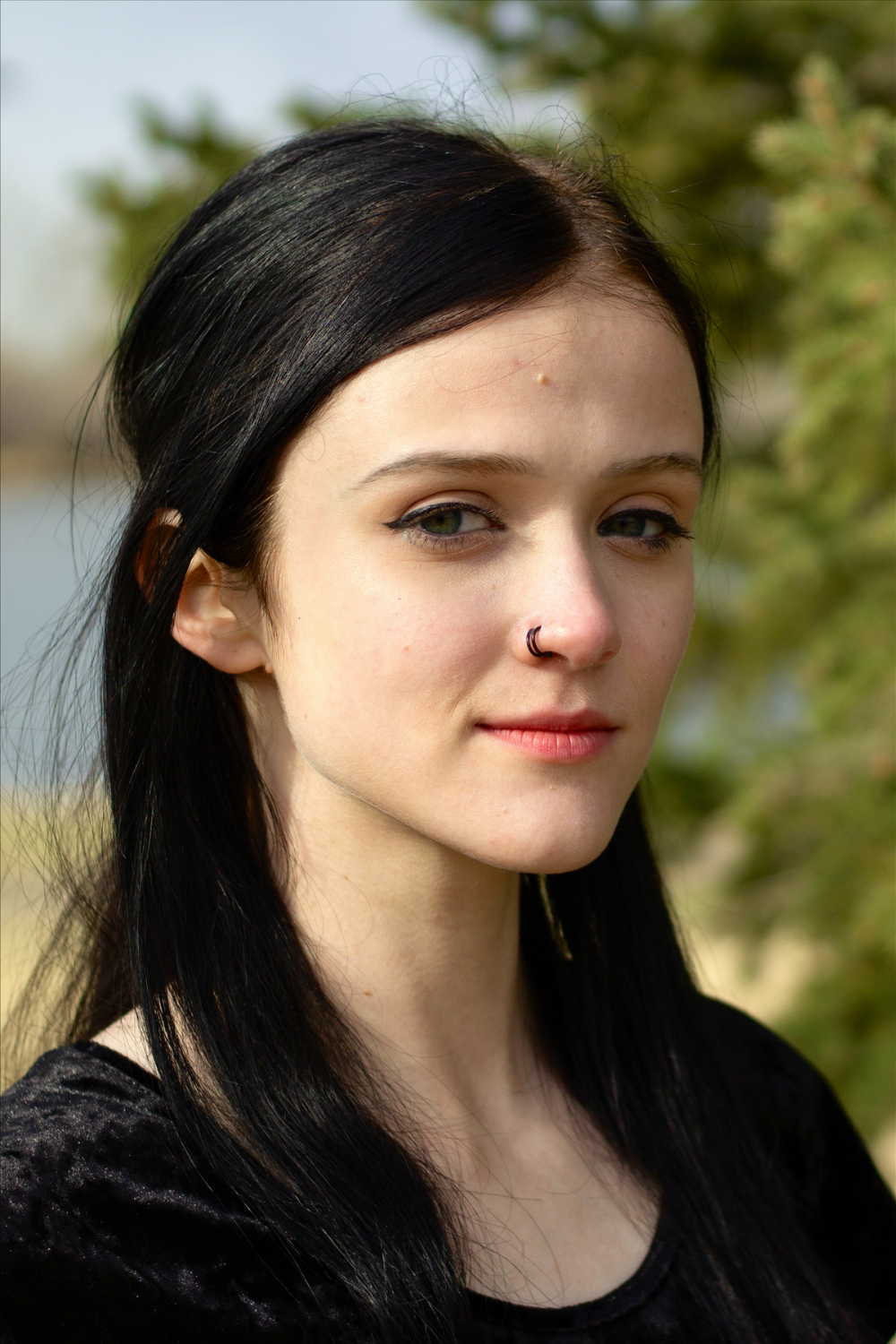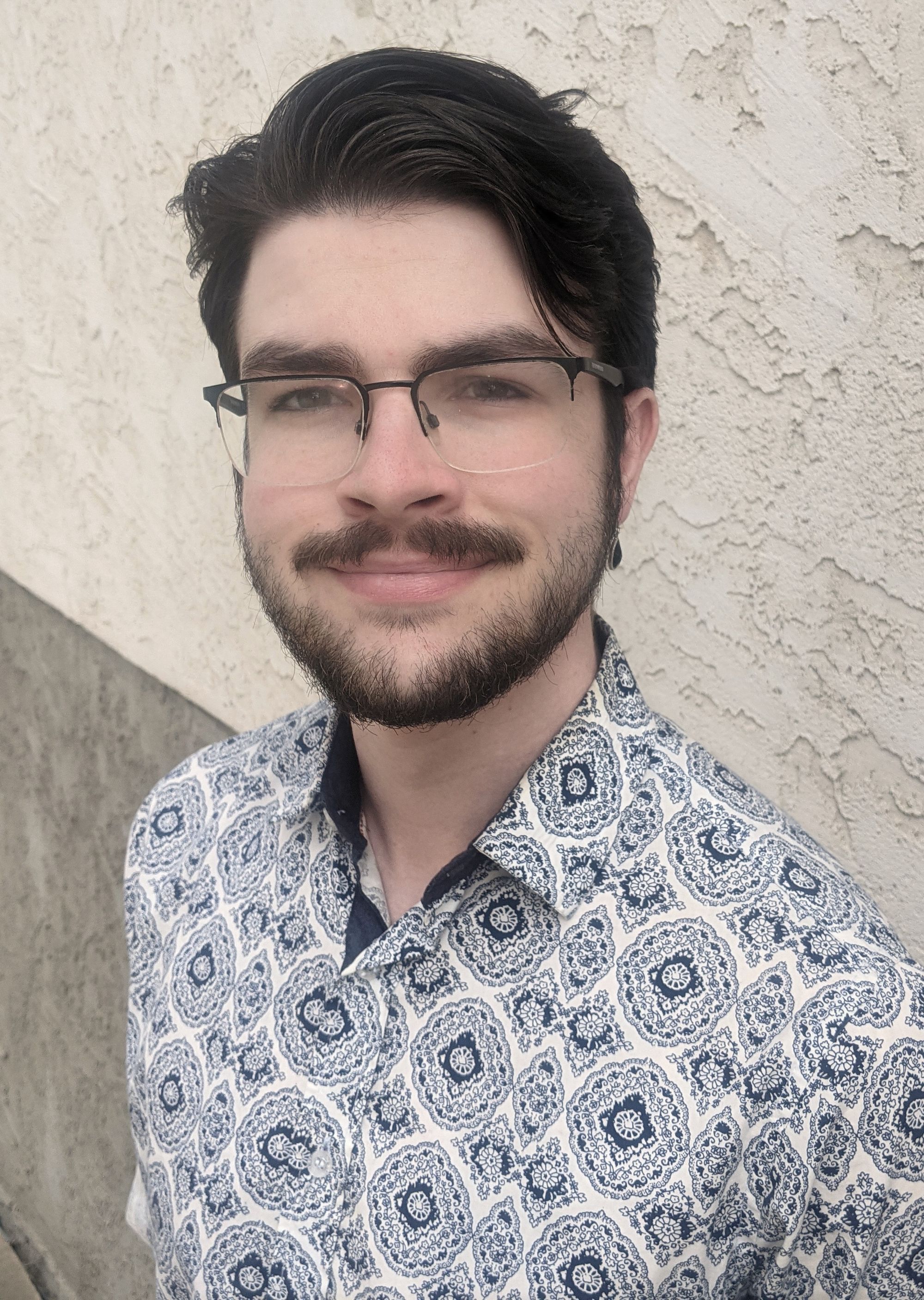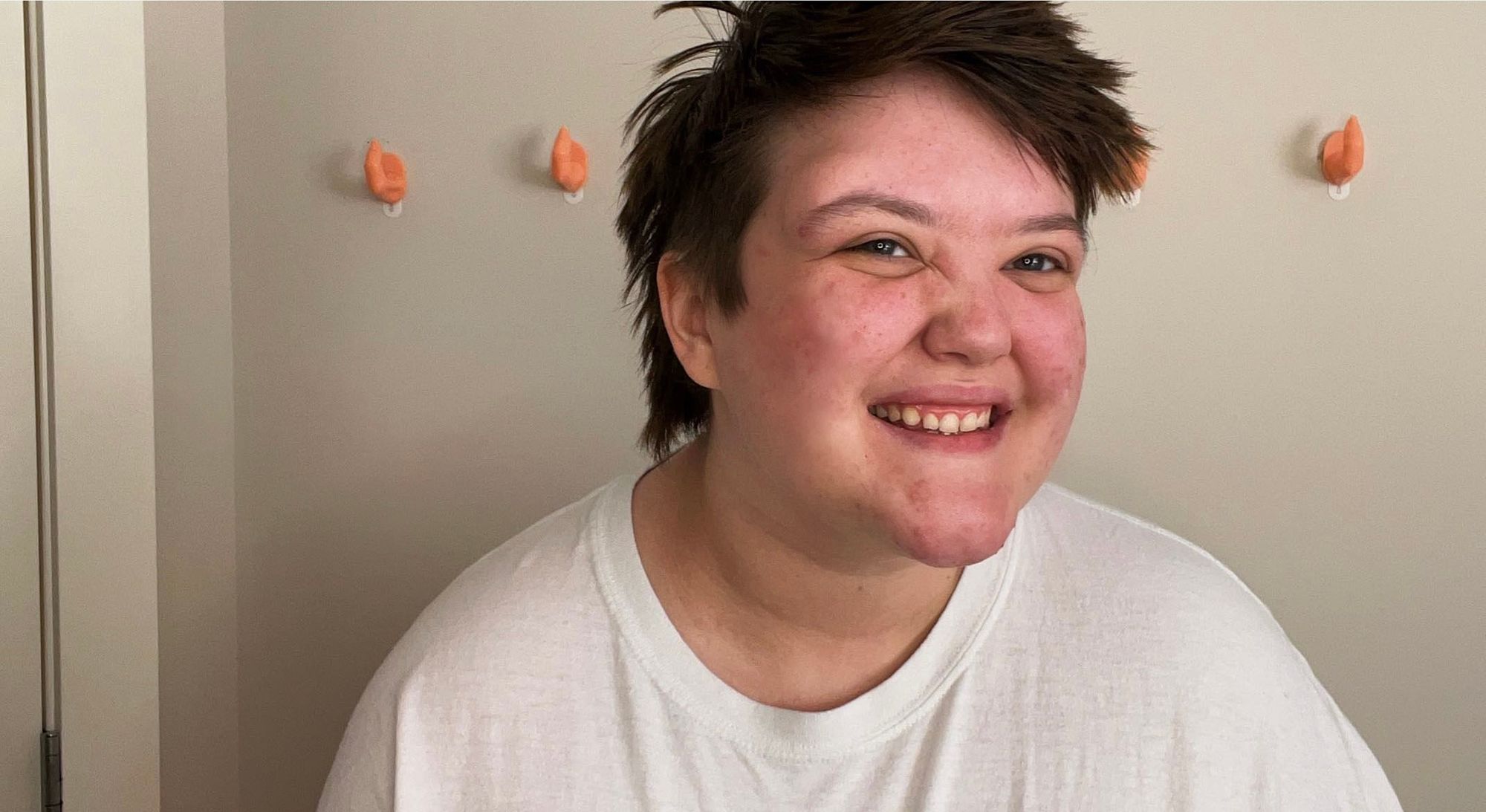From stories on the family of Albert Einstein, to a heart-racing plane crash, to meditations on the afterlife, these represent the breadth of curiosity and imagination that three University of Lethbridge students have.
Avery Raine, Carter Debusschere and Achilles Friesen are the first, second and third-place winners of the 2022 Play Right Prize. The Play Right Prize competition aims to encourage excellence and development in student playwriting.
Since 2008, alumnus Terry Whitehead (BA ’94) has been inspiring future playwrights through his generous support of the Play Right Prize, awarding $2,500 annually to student playwrights and highlighting the winning entries at a public play reading.
“We’re so grateful to Terry Whitehead for his longstanding support of playwriting at the University of Lethbridge, and every year we continue to celebrate the outstanding work of our students,” says Dr. Shelley Scott, interim dean of the Faculty of Fine Arts. “Many past winners have gone on to continuing careers in theatre, and this award is a real incentive and encouragement to keep working on their creative craft.”
Avery, Carter and Achilles discuss their script and what the support means to them.
Avery Raine
Psychology and dramatic arts student Avery Raine is the winner of the 2022 Play Right Prize competition. Her play, Relativity, Etc., is an imagined rendition of the life of one of the true icons of the 20th century.

For the winning script, Avery focuses on Albert Einstein’s first wife, Mileva Marić. She explores the tangled family dynamics of their sons, Hans and Eduard, and ruminates on the life that could have been for their daughter Lieserl, as she is suspected to have died of scarlet fever before the age of two.
“I'm very interested in Canadian feminist theatre, so that was a big part of wanting to tell Mileva’s story. I want it to be about her, but as it went on, it became about her and her children,” says Avery.
Her play primarily focuses on Mileva and her son Eduard, who wanted to follow in the steps of Sigmund Freud and become a psychologist. Eduard was diagnosed with schizophrenia around the age of 21, and Avery’s play picks up in 1930, following Eduard’s hospitalization in Switzerland following a psychotic break.
Avery’s submission was praised by the jurors of the prize for its excellent composition, its lyrical take on ancestry and legacy and its unique perspective on mental health. The jurors were especially enraptured by the script’s intriguing question: am I crazy, or just haunted by ghosts of the past?
Creating the play did not come easy for Avery. She says it took her a few years to write and it was something that she struggled with.
“I got the idea for the play when I was writing something else. I had TV on as noise in the background, and it was a documentary about Albert Einstein. It spent about five seconds talking about Mileva basically being like, they met at school, they got married, they had these children, and then they divorced.”
“I looked more into Mileva’s life, and originally, it was just going to be about her. I wasn't going to focus on their kids as much, but there was so much there,” she adds.
This is Avery’s second win in the competition as a student, having received the third-place prize in 2021 for her submission. As first prize winner, Avery receives $1,500 for her win this year and dramaturgical support to develop her script further. A reading of her play will take place in the fall at ULethbridge.
Carter Debusschere
Winning second prize is drama student Carter Debusschere for his submission, Pressure Drop. Loosely based on a real-life air crash, Carter’s play uses an imaginatively crafted structure to tell a compelling story in a theatrically mature and innovative way. He utilizes an expressionist style that puts readers in the mind of the plane operator, who faces their demons while in the air.

“The main dramatic convention is that the play works through memories,” says Carter.
“Essentially, in these final moments of consciousness as the plane is going down, the lead character is able to go back to any specific memory in his past, and relive it as if he was there.”
Carter included three spectral beings in his play that guide the main character, something he says was inspired by the boatman, Charon, that guides deceased souls across the river Styx in Greek mythology.
“They're kind of like this source of comfort, guiding him through the whole experience. These three figures are kind of the access point to that, the main character tells them what he wants to see, and they show him,” says Carter.
He adds that his play is inspired by a real event and he has been careful to respect the privacy of those involved in the event, noting that everything related to the event itself has been changed to respect the memory of the deceased.
When Carter found out he had won second prize, he says he was surprised, as this was his first piece of completed original work.
“I was very pleased and honoured to have won. Two very close friends of mine are the first and third-place winners, so getting to share this honour with them has been very gratifying.”
The jurors had especially high praise for the way the high stakes plot line engages the audience from the intriguing beginning to the shocking conclusion. Carter receives $750 for his submission and will also receive dramaturgical support from a member of the adjudicating jury.
Achilles Friesen
The third prize goes to Achilles Friesen, a dramatic arts student minoring in philosophy. Their philosophy background shines within their play, So Long, which explores three young lost souls and the limbo-like state that they find themselves in, tackling existential questions related to death, mortality and the afterlife.
“On another level, it's about dying young, and uncertainty. Death is kind of the big thing I was going for and I think there's a lot of uncertainty in my generation about what's going on. I wanted to emulate that death isn't the end, and that we don't get all of our questions answered when we die.”

For Achilles, they based the characters off of themself during a time of significant change in their life, figuring out their own identity and how their religious upbringing influenced that. Achilles says being a philosophy student while going through this change shaped the writing of the characters.
“It was a time in my life where I was changing and I thought it'd be interesting to write everything down that was happening to me right now. It made me feel less alone. I feel like a lot of people have very similar struggles that these three characters have.”
Achilles adds that now, more than ever, it’s important to ensure that genderqueer people are included in artistic spaces, as characters in scripts and are reflected on theatre stages.
“On top of educating people about philosophy and what it looks like in an artistic realm, it's also important to bring in all the genderqueer students we have here and show them that there's roles for them. So, that was my big thing. That's something that I'm still writing and working on, is making sure I have that genderqueer element in everything I do.”
This is not the first time Friesen has showcased this work to others, as it was recently performed for TheatreXtra, the student-centred theatre production program, at the beginning of 2022. Achilles says their piece has gone through many drafts, and they expect several more to come as they develop the play further with their prize.
“I'm very excited for the dramaturgical support. I'd love to see where the piece takes me. I've also, in the future thought about writing it all over again, but with three different people in the same situation. It's one of those plays that I wrote to be performed. I'd love to see how many times I can perform it and then change it and perform it again.”
The jury notes that Achilles’ characters, reminiscent of Pirandello and Camus, are carefully crafted to challenge these existential questions with a philosophical punch that will keep viewers thinking long after the ending. Achilles receives $250 for their play and dramaturgical support from the jury.
The 2021 prize went to dramatic arts student Jessica Syratt, who presented her play at a virtual reading last year.
The 2022 Play Right Prize jury is made up of Drama Faculty members Dr. Shelley Scott and Dave Smith, as well as Trevor Rueger from Alberta Playwrights' Network, who will coordinate dramaturgical support for the second and third-place winners.